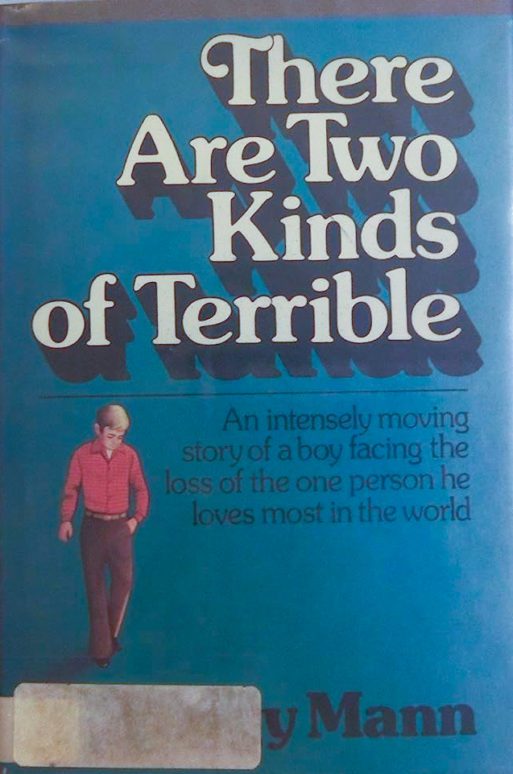 Peggy Mann wrote “There Are Two Kinds of Terrible,” a book about a child who loses his mother to cancer, in 1977. Much of the technology and hospital policies have changed since the book was released, but the feelings of a 12-year-old boy who has lost his mother are spot on.
Peggy Mann wrote “There Are Two Kinds of Terrible,” a book about a child who loses his mother to cancer, in 1977. Much of the technology and hospital policies have changed since the book was released, but the feelings of a 12-year-old boy who has lost his mother are spot on.
Overall, Robbie Farley thinks he has a normal, happy family. He has a stay-at-home mom with whom he has a great relationship. His father works long hours and is kind of a “cold fish,” but Robbie still loves him.
Then comes the day when Robbie’s mother tells her son that she has to go to the hospital for a “very minor” operation. Eight weeks later, she dies of cancer without ever coming home.
Author Mann is pitch-perfect when it comes to presenting the myriad of emotions that rush through Robbie’s mind and body. He is frightened, grief-stricken, lonely, angry, numb and depressed. He and his father have no idea how to interact with each other or help each other. His classmates don’t know how to react to him. His only real support comes from his best friend, Jud — and Jud is only a kid himself.
The story reaches a peak when Robbie finds his father asleep with a cigarette in his hand and lashes out at him. His father slaps him across the face, and he punches his father in the stomach. However far apart they may have drifted, though, they still desperately need each other. As they struggle to build the relationship they never had, they find new ways to support and communicate with each other.

Credit: morguefile.com
The story is told in first person from Robbie’s point of view. The tone is direct and consistent with the voice of a child on the brink of puberty.
“There Are Two Kinds of Terrible” is an informative and reassuring book for children between the ages of 10 and 15. Adults who work with grieving children will also find it useful. It is a relatively short book, running around 135 pages.
There are a few concepts in this book that are dated. In the novel, for instance, Robbie is not allowed to visit his mother in the hospital. If the story were set today, the hospital staff would do everything in their power to let him have as much access to his mother as possible. It is also more likely that his mother would have come home to die under hospice care and that Robbie would have received bereavement counseling instead of having to figure everything out for himself.
“There Are Two Kinds of Terrible” is out of print, but it is relatively easy to find on websites that sell used books. If you are looking for a moving, compelling story about a family seeking closeness in the face of loss, don’t hesitate to order this book.

 “There Are Two Kinds of Terrible” by Peggy Mann
“There Are Two Kinds of Terrible” by Peggy Mann


 Greenland Sharks May Offer Clues to Extending Human Lifespans
Greenland Sharks May Offer Clues to Extending Human Lifespans
 Losing Her Constant
Losing Her Constant
 Sky Lanterns Bear Wishes and Remembrance into Night Sky
Sky Lanterns Bear Wishes and Remembrance into Night Sky














